
Issue 213
January 2025
Paul Browne reflects on Dominick Cruz’s relentless resilience as he defies injuries, setbacks, and time for one final walk to the Octagon.
If comebacks were a sport, Dominick Cruz might be the pound-for-pound GOAT. As he preps for his final fight, we reflect on his journey marked by UFC titles and an extraordinary series of wins over injuries. His legacy is one of willpower, where he’s transformed setbacks into stepping stones forward and battled adversity to redefine what it means to be a champion.
HUMBLE BEGINNINGS
Cruz will fight for the final time when he faces Rob Font in the co-main event at UFC Seattle: Cejudo vs. Song on February 22nd. The sport he walks away from is immeasurably different from where he made his pro debut in 2005.
“At that point, it was still illegal in every state in the United States,” Cruz recalled during an appearance on The Ed Clay Show in 2024. “And we were fighting on Indian reservations, and it was considered human cockfighting. During that time, there was only 155lbs and up. So, I’m carb loading and putting on weight and eating as much protein as I can and lifting weights because you’re not even thinking that there’s eventually going to be 135lb or 145lb weight classes at this time.”
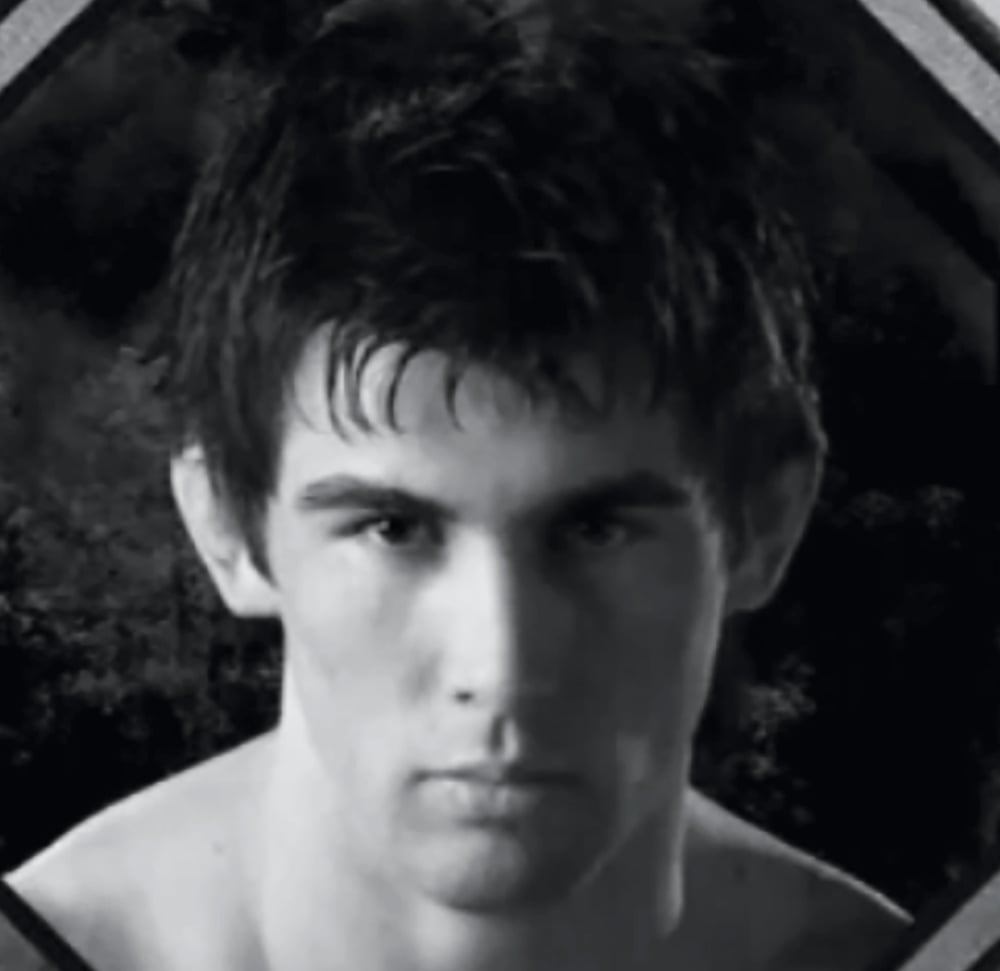
THE EARLY GRIND
Modern pros stand on the shoulders of early pioneers like Dom, who did the job for love.
“At this time, I’m still going to school, and I’m working three jobs to pay for my school and to pay for my house, because I moved out on my own when I was 18. So, I had to start college right away, and I had to start three part-time jobs to pay for the college and pay my rent. But I’m fighting on the weekends to get it all out of my system. I was just so pent-up. So miserable. So angry. I was just working to get the week done and to party on the weekends at that time, at 18, 19, 20 years old. I was living like a 35-year-old dad because I wanted to have things and not be living paycheck-to-paycheck anymore. Grinding, grinding, grinding. And fighting at the weekends was my outlet. You’re telling me that you’re going to pay me, and all I have to do is drive up to Phoenix, and you’ll give me a couple of hundred bucks. I just have to get my medicals done, and I can just beat somebody to death, and nobody’s going to arrest me. And it’s legal? I just enjoyed getting to beat people up on the weekends instead of doing it in the streets. I kept taking fights on the weekends, and I kept winning, and I got to 5-0 as a professional in the region, and I had beaten the state champion. A guy I knew from wrestling who was way better than me, had won a state championship, and I just knocked him out. I thought, ‘This is weird. I like this sport. It’s like wrestling, but I can cheat!’ When I saw The Ultimate Fighter on TV, I thought, ‘This is not going to stay little and stupid.’ I could see that this was going to take off. I just knew it. Boxing took off, why wouldn’t MMA? I didn’t have any doubt in my mind once I saw The Ultimate Fighter that the sport was going to explode.”
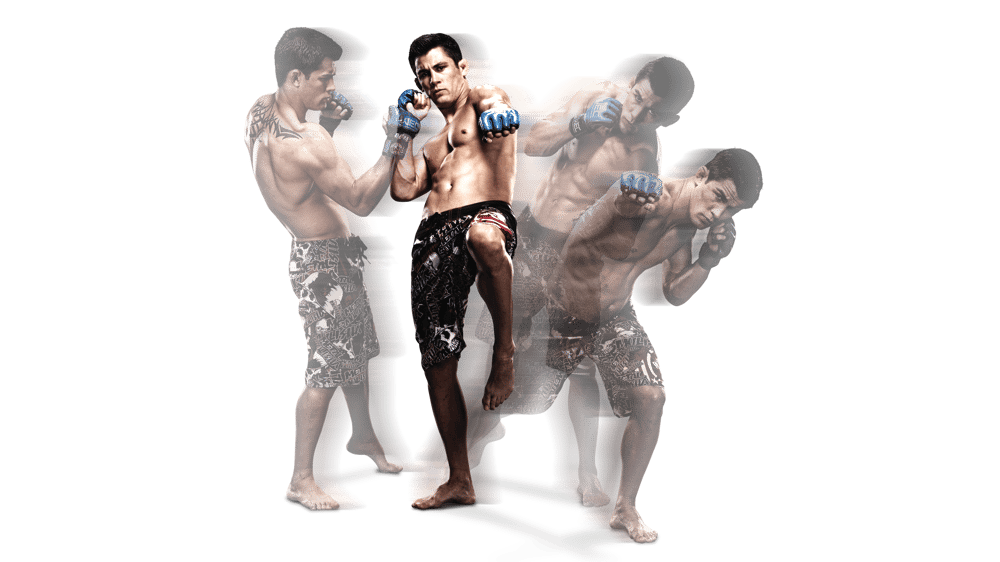
MEETING ERIC DEL FIERRO
The turning point in Cruz’s early career came in 2006. Cruz won three fights under the Total Combat banner in five months without coaches or cornermen. Under the watchful eye of Eric Del Fierro, who became Cruz’s first manager and coach, he booked a fight with Urijah Faber for the WEC world featherweight title. The step-up proved too much at 21, as Faber submitted him inside the opening round.
“I felt so good with him until I broke the game plan,” he recalls that night at the Hard Rock Casino in Las Vegas. “That wasn’t the game plan, what I did which was to wrestle because he could grapple, and we knew he had a good guillotine, so the plan was to stay striking and keep him on his feet. And I shot a takedown when I got uncomfortable because I had never felt anything like that level of all that pressure in one small moment in that first round. They say the shell shock from the lights. That’s when they talk about that in the UFC. I experienced it on that night, that overstimulation of the big show, and the lights, and the money. And it got me.”
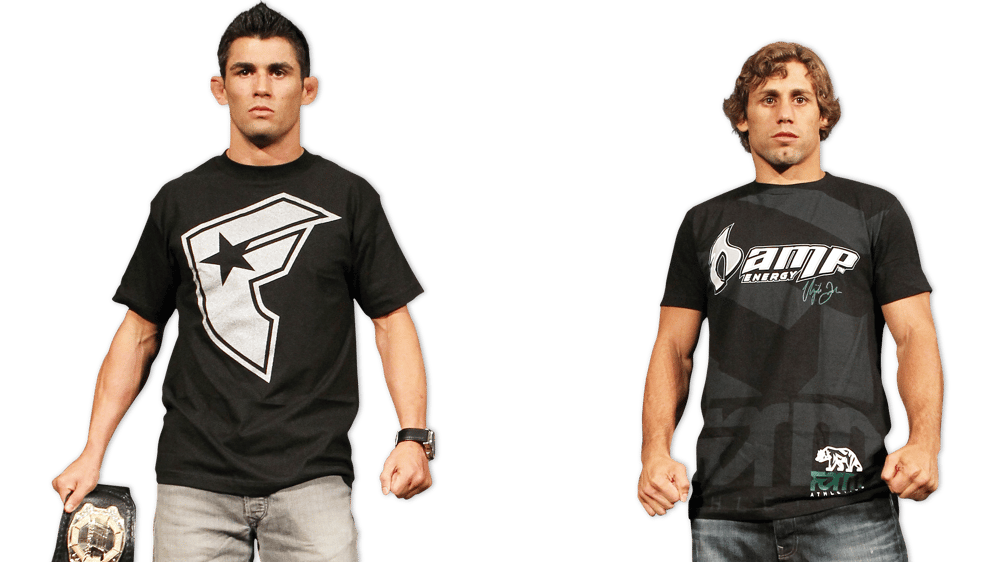
CRUZ BECOMES UFC CHAMPION
After the loss on the big stage, Cruz hit a six-fight win streak and won the WEC world bantamweight title in 2010. After defending the belt twice, he became the inaugural UFC bantamweight champion when the two promotions merged.
“The competition was the same,” he says. “People would say, ‘Oh, now you’re in the big leagues,’ but I always had been. We had started it. It never changed. None of the opponents changed. I was already fighting the best bantamweights in the world in the WEC. Now, in the UFC, it was the same thing.”
Cruz’s impressive winning streak carried over into the Octagon as he beat his old rival Urijah Faber to defend his belt successfully. “That was the guy that had beaten me. It was the only loss I had, so I had to avenge my only loss.”
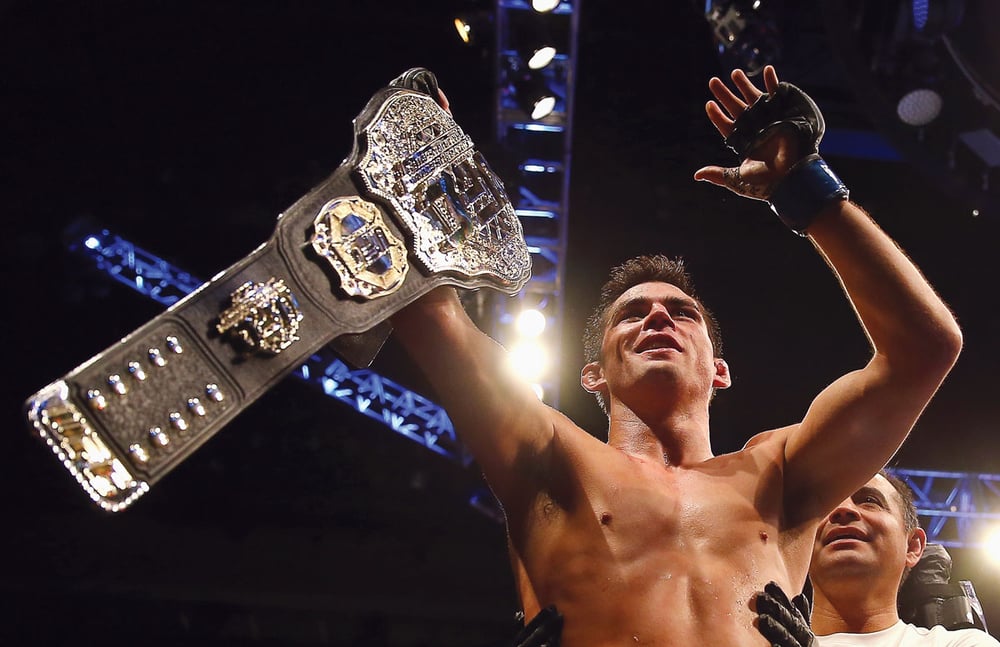
SETBACK AFTER SETBACK
Cruz then beat Demetrious Johnson to defend his title, prompting the UFC to book him and his nemesis Urijah Faber to coach opposite each other on the first live season of The Ultimate Fighter, with a rubber match between the pair scheduled to take place shortly after completing the show. However, the fight never came to fruition as Cruz suffered an injury during filming.
“I blew my ACL and MCL,” he explained, “I blew it on the show. That still hurts my heart. There was a lot of money on the table. That was going to be my big payday. I was going to get pay-per-view buys on the Chael Sonnen vs. Anderson Silva fight (at UFC 148). I was going to get PPV money on that and I pulled out because I couldn’t even walk.”
That injury started a miserable run of fortune for Cruz. He missed the paycheck and then needed a second round of ACL surgery, so he began commentating while recovering.
“During that entire time, I get to commentate about how great all these guys are while I’m mending my blown-out knee,” he winced. “So that was difficult too, but that also became a blessing. It gave me something that I love. I’ve been doing commentary for eleven years now because of that.”
After spending 2013 recovering, Cruz was booked to face Barao, but then he tore his quad off the bone. Bad to worse is an understatement.
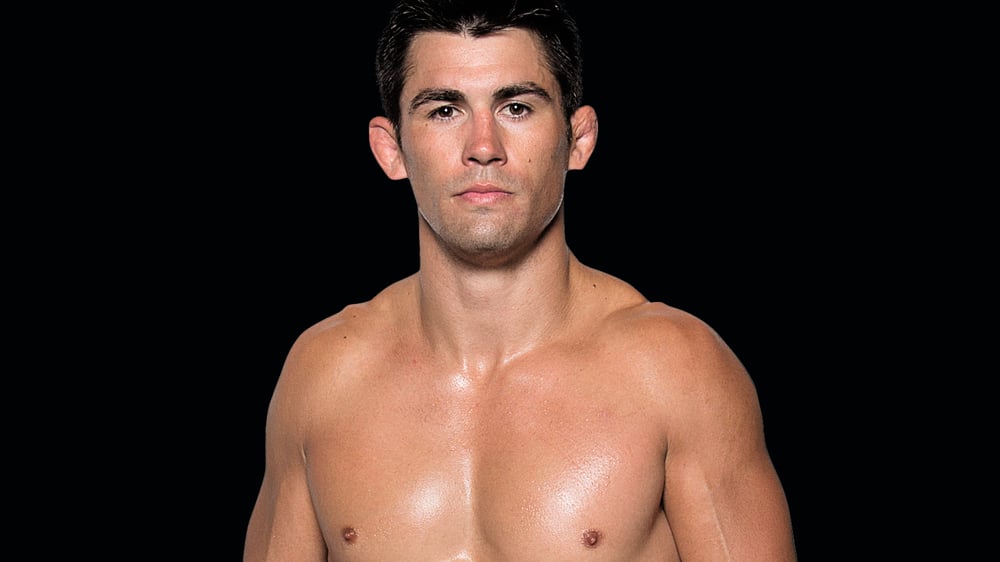
THE COMEBACK TRAIL
The injuries saw Cruz stripped of his title. He finally returned to face Takeya Mizugaki, one month shy of three years since his last fight against Demetrious Johnson. Cruz delivered one of the most devastating performances of his career, taking his Japanese opponent down and finishing him against the fence with barely a minute gone on the clock. The win earned him his first performance of the night bonus and a chance to face then-champion T.J. Dillashaw. The celebrations were short-lived. Unbelievably, Cruz injured his other ACL while throwing a high kick in training.
“I sat down, and I looked at Eric Del Fierro, and I said, ‘I blew my knee out,’ and he’s like, ‘No, come on, no way!’ And I said, ‘I did, 100%, but don’t worry, nine months and we’ll be back.’ It was the weirdest thing. I remember saying that to him, knowing, ‘I know how to do this now.’ Because after injuring my quad, I had just surrendered to the situation, and I had so much practice from the first two injuries that I just knew exactly what to do. I’m gonna do all of the rehab, and I’ll be fine. It was weird!”
The experience Cruz gained from his previous long injury layoffs put him in good stead this time.
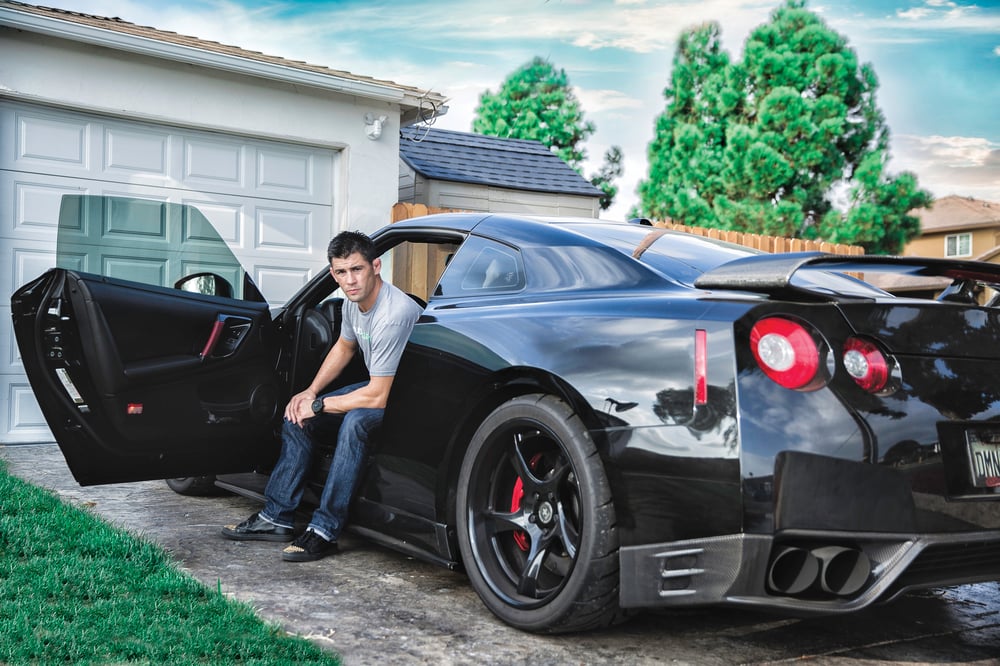
THE ULTIMATE COMEBACK
Cruz eventually returned to face T.J. Dillashaw for the bantamweight title in 2016. At that point, the 61 seconds he spent in the Octagon with Takeya Mizugaki was his only taste of live competition in almost four-and-a-half years. It didn’t show as Cruz performed virtuously against Dillashaw. He emerged victorious through a split decision to cap an extraordinary comeback.
“Comparison is the thief of joy, right?” he said. “So, I can compare what I’ve been through to so many people in the world who’ve been through so much, and sometimes that will take away from what I’ve done. But how would you put a waterline on something like my comeback? I would have to look at other sports to see who’s done something similar, and there’s not a lot of examples out there of people who have. You look at football players. Not a lot who’ve had triple ACL reconstruction and seven hand surgeries. Basketball, soccer, boxing. You just don’t hear about it.”
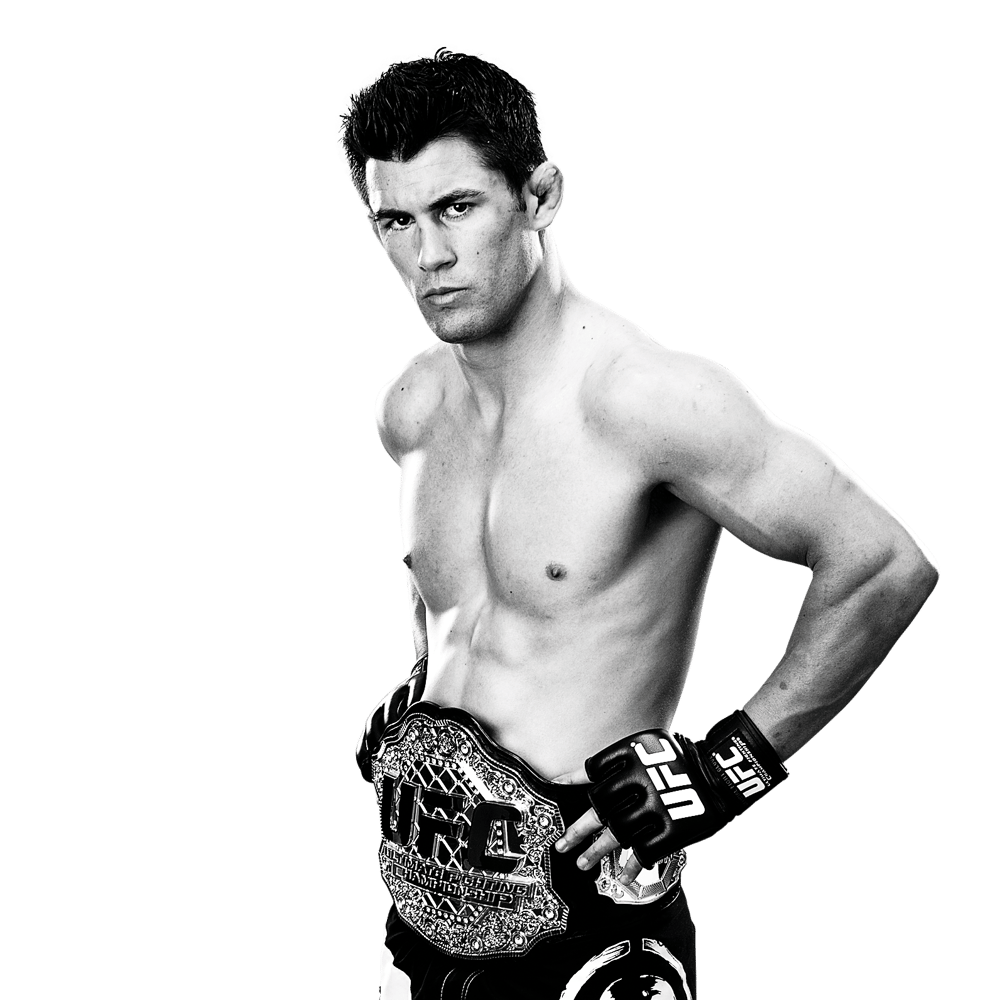
HUMBLE IN DEFEAT
Cruz successfully defended his title against his old foe, Urijah Faber, before losing it to Faber’s protégé Cody Garbrandt in 2016. His reaction to the defeat showcased a maturity learned from his career-threatening injuries.
“Loss is part of life,” he explains. “If you don’t have loss, you don’t grow,” said Cruz while speaking at the post-fight press conference. “This isn’t tough. This is life.”
Cruz brushed away that suggestion and took ownership of the loss when asked if his past injuries could be blamed for the defeat.
“I was there,” he said. “That was 100% me. I was healthy. I was everything I’ve always been in my eyes. I got caught in a couple of transitions. That’s how it goes in this game. You’re swinging 4-ounce gloves. You get caught sometimes. After seeing the look in his eyes, a couple of times when I punched, when I kicked him, when I fought him. I’m not disappointed in myself at all. All I can say is, ‘I lost,’ and I’ll take my loss like a man.”
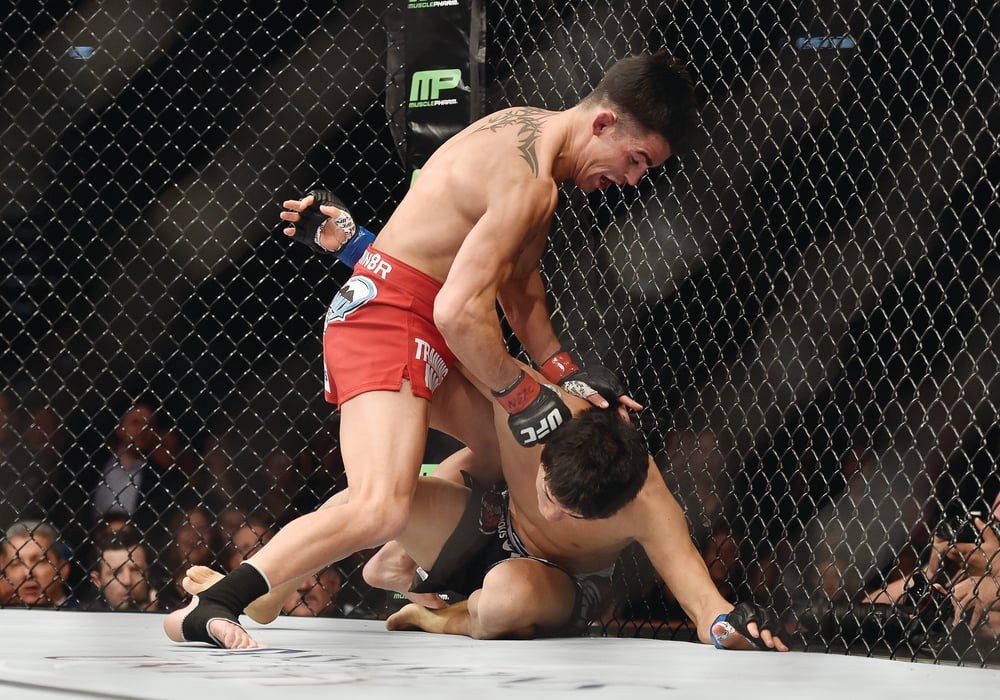
THE FINAL WALK
More long layoffs have punctuated the remainder of Cruz’s career. It would be three-and-a-half years before he returned after the loss to Garbrandt. After failing to topple then-UFC bantamweight champion Henry Cejudo, another year on the sidelines followed. A pair of wins and one defeat means that by the time he makes the walk to the Octagon for the final time, it will have been 923 days since his last fight. Cruz would have every right to look at his UFC career and imagine wat might have been, but he is grateful for the lessons learned.
“When you hit depression the way I have, you’ve got to find new ways to make things work,” he said. “And that’s probably one of the biggest things I’ve been able to adjust to. Creating my own experience through those things. Responsibility. Gratitude. Trust. Love. Vulnerability. These are things I would have never used in my life a few years ago. Now, I use them every day otherwise, I’ll die. I’ve seen what not using them creates, it creates a lot of pain in my life, so I had to change who I was being.”
As he steps into the Octagon for the final time, his legacy will be defined not only by the titles and accolades but also by the resilience and wisdom he’s gained. His career proves that greatness lies not in avoiding setbacks but in rising from them stronger because they often lead to the most meaningful victories.










